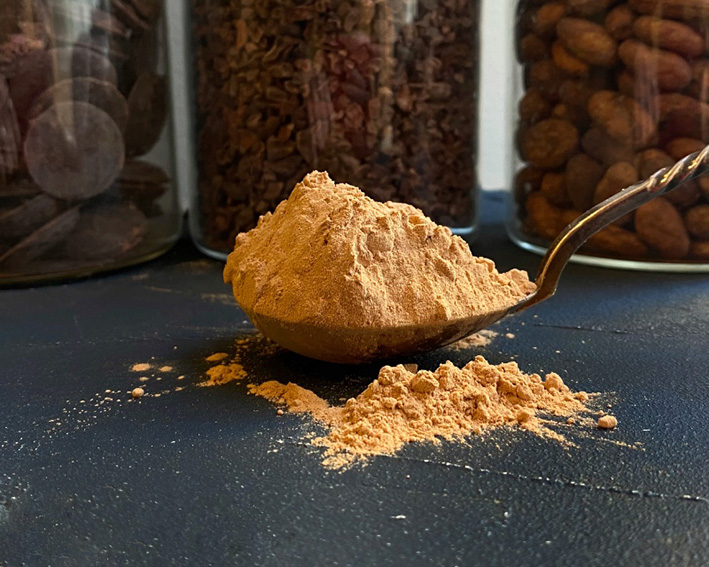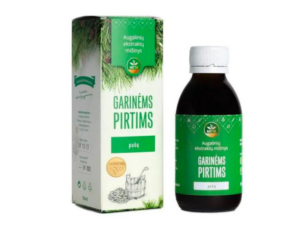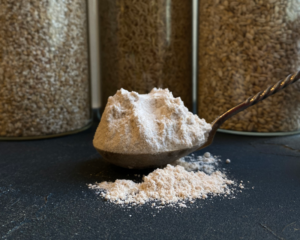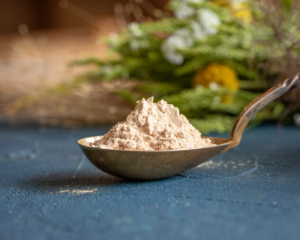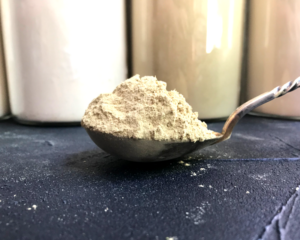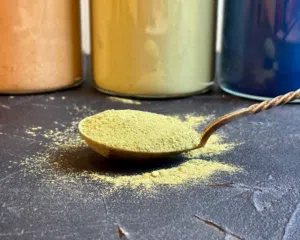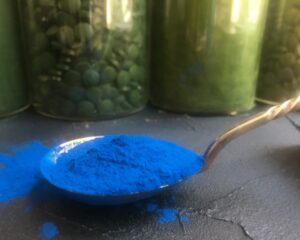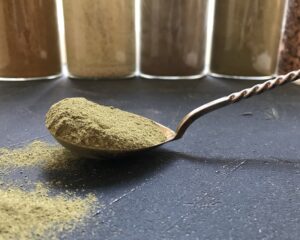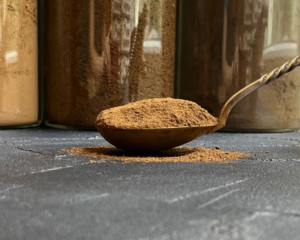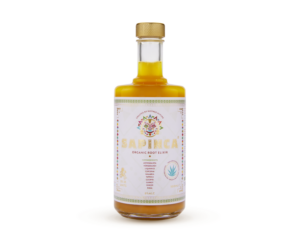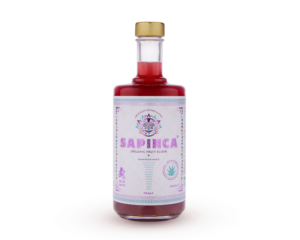Organic Carob powder, roasted
From 1.60€
Roasted organic locust bean (carob) powder
The carob (Ceratonia siliqua) is a small drought-tolerant tree species that grows in the arid climates of Africa, Asia and southern Europe. The term ‘poinsettia’ refers to the fruit of a tree, which is a flat, oval pod containing many small seeds. In the ancient Middle East, carob seeds (seeds of the sweet locust tree) were used to measure the weight and value of precious metals and stones. It eventually became known throughout Europe as the ‘carat’, and the 24 beans of the poinsettia were the exact weight of a solid Roman coin made of pure gold. Thus, “24-carat” came to be called pure gold and has survived as the modern classification for all precious metals and stones.
Jaan breadfruit pulp is used as a healthy and tasty alternative to chocolate. It has been loved throughout the ages for its sweet taste and is a great chocolate substitute for those allergic to the theobromine in cocoa. It can also be used as a chocolate substitute in desserts and is a great addition to cocktails. It can be used in baking and cooking as a healthy alternative sweetener. A great addition to pastries, ice cream, baked goods.
Although sweet, of course, a Christmas sandwich doesn’t raise blood sugar levels like chocolate. Carob contains a very low glycaemic index (GI), making it a great alternative to chocolate for diabetics. A study has been published which found that the fibre content of carob can help control blood sugar levels. The study also showed that the hormone ghrelin secretion is controlled by carob. Ghrelin, also known as the hunger hormone, is produced mainly in the gut, but also in the brain, pancreas and small intestine. The fibre in the yuana plant has been found to reduce ghrelin production. This creates a feeling of fullness during meals, which in turn prevents you from eating up.
Carob is rich in tannins, which help fight toxins in the digestive tract and prevent the growth of harmful bacteria in the gut. Instead of dissolving in liquid, these tannins have a drying effect, which makes them a useful remedy for diarrhoea. They are also rich in insoluble fibre, which does not break down in the intestines. This increases the amount of waste in the digestive system, which helps maintain regular bowel movements and prevent constipation. Ayurveda uses japonica powder to treat diarrhoea and digestive problems. Studies carried out in Belgium in 1989 have shown that babies suffering from diarrhoea recovered more quickly when they were given powdered japonica, possibly due to the tannins, which not only bind to toxins and thus deactivate them, but also inhibit bacterial growth.
Carob drink: mix 2-3 tablespoons of vanilla bean powder with a hot herbal drink – a healthy and tasty drink for children.
Sources: Healthline.com, ScienceDirect.com
NB!
The information provided here should not be interpreted as a recommendation for treatment or other types of health problems.
We recommend that you make personal health decisions after evaluating various sources of information.
100% organic carob powder
Energy value 1256 kJ / 300 kcal
Fats 0,7 g
- of which saturated fatty acids 0,1 g
Carbohydrates 49 g
- of which sugars 41 g
Fibre 39,8 g
Protein 4,6 g
Salt 0,09 g
Store in a cool, dry place.

